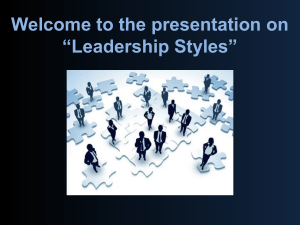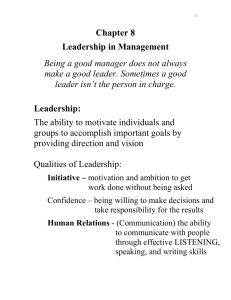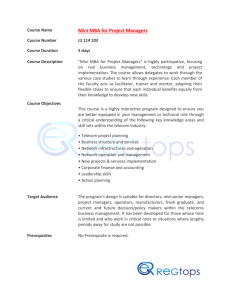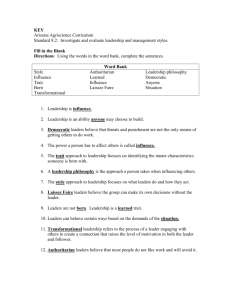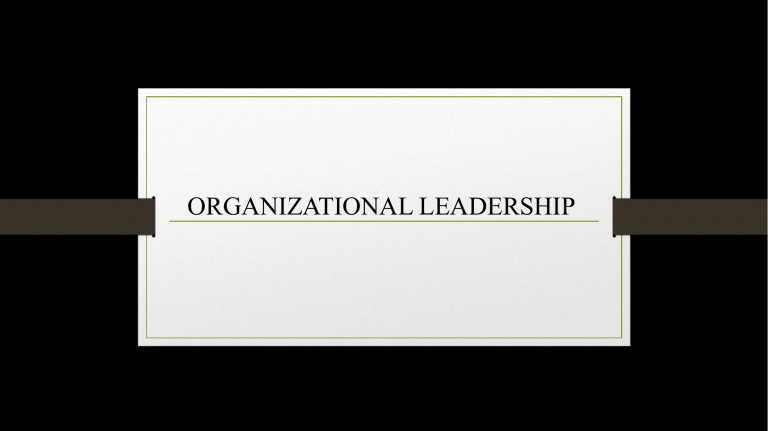
ORGANIZATIONAL LEADERSHIP Organizational leadership • Involves setting strategic goals and motivating individuals to achieve them. In the school setting, the school leader helps set goals and motivates teachers, parents, learners, non-teaching personnel and other members of the community. It works towards what is best for individual members and what is best for the organization as a group. Both individual and group are necessary. School Head Must be Both a Leader and a Manager - School heads lead the school and community to formulate a vision, mission, goals, and school improvement plan, ensuring resources and qualified personnel are available. Leadership Versus Management - Leadership is the ability of an individual to influence, motivate, and enable others to contribute to the organization's success. Management is responsible for controlling an organization, a group, or a set of entities to achieve a particular objective. Types of Skills Demanded of Leaders • Technical skill - Refers to any type of process or technique like sending e-mail, preparing a power point presentation. • Human skill - Is the ability to work effectively with people and to build teamwork. • Conceptual skill - Is the ability to think in terms of models, frameworks and broad relationship such as long range plans. Leadership style • Autocratic - Autocratic leaders do decision making by themselves. • Consultative – Uses the skills of others to create plans and make decisions. • Democratic leaders – Allow the members of organization to fully participate in decision making. • Laissez faire – Leaders avoid responsibility and leave the members of organization to establish their own word. Servant leadership • The servant-leader is a type of leader who seeks to serve and lead. Transformational leadership • A leader works with teams or followers beyond their immediate self-interests to identify needed change, creating a vision to guide the changes. Sustaining change • Any change to a process is only successful in the long run if the stakeholders truly adopt and sustain the change.
